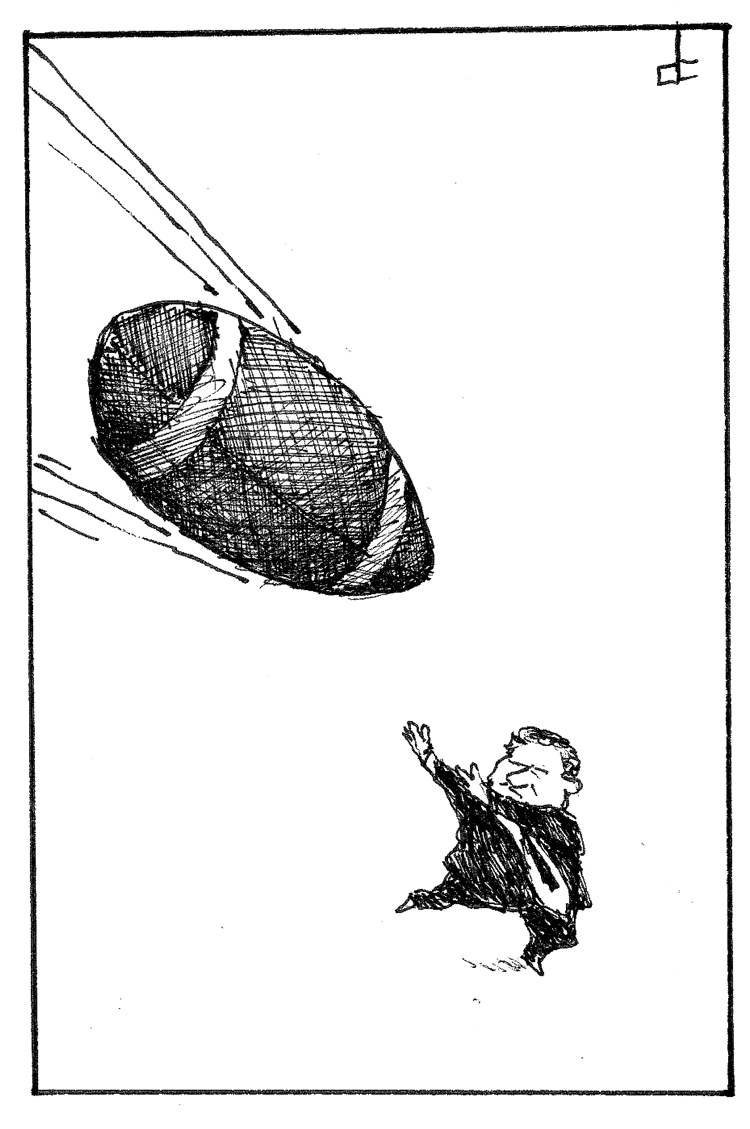Give fans a stake in Bombers
Advertisement
Read this article for free:
or
Already have an account? Log in here »
To continue reading, please subscribe:
Monthly Digital Subscription
$0 for the first 4 weeks*
- Enjoy unlimited reading on winnipegfreepress.com
- Read the E-Edition, our digital replica newspaper
- Access News Break, our award-winning app
- Play interactive puzzles
*No charge for 4 weeks then price increases to the regular rate of $19.00 plus GST every four weeks. Offer available to new and qualified returning subscribers only. Cancel any time.
Monthly Digital Subscription
$4.75/week*
- Enjoy unlimited reading on winnipegfreepress.com
- Read the E-Edition, our digital replica newspaper
- Access News Break, our award-winning app
- Play interactive puzzles
*Billed as $19 plus GST every four weeks. Cancel any time.
To continue reading, please subscribe:
Add Free Press access to your Brandon Sun subscription for only an additional
$1 for the first 4 weeks*
*Your next subscription payment will increase by $1.00 and you will be charged $16.99 plus GST for four weeks. After four weeks, your payment will increase to $23.99 plus GST every four weeks.
Read unlimited articles for free today:
or
Already have an account? Log in here »
Hey there, time traveller!
This article was published 17/08/2013 (4485 days ago), so information in it may no longer be current.
The Winnipeg Blue Bombers are described as a community-owned team, but it has never been very clear what that means. The community doesn’t run the team, doesn’t pick board members, doesn’t hire or fire. It owns no shares, votes at no meetings and doesn’t do any of the things an owner — public, private or non-profit — normally does.
But if the team isn’t truly owned by anyone, then what is it exactly?
The question can only be answered by observing how it operates.

The city and province each appoint one member to the board, presumably to represent the community interest, while 10 other members are appointed by, well, themselves, also to represent the general good of football fans and the larger public interest. This presumably is what is meant by community-owned. That, and the fact civic and provincial governments have always helped the team with its deficits, and with the decision to construct the new stadium at the University of Manitoba.
If a board member leaves, he or she is replaced by the board. If the board makes a mistake, loses money because of bad judgment or behaves in a discreditable way, the matter goes straight up the ladder… to the board.
The only comparable examples of a similar operation in Canada are the Edmonton Eskimos and the Saskatchewan Roughriders. The other teams in the CFL are privately owned.
Saskatchewan, however, has a robust system of community governance involving about 10,000 shareholders who pay a one-time fee of $250 for the right to attend annual general meetings, elect directors and vote on other matters, either in person or by proxy.
Edmonton’s model is closer to Winnipeg’s, although it, too, has a group of 80 shareholders who theoretically can replace directors when they retire or quit.
Unlike Winnipeg, however, Edmonton’s tepid governance model has not come under intense scrutiny because the team has been fortunate in its choice of board members, who seem to know their boundaries. They are there to provide governance, work with governments and the league, and provide direction to secondary operations.
They are not there to run the team, or decide who should play quarterback. Nor do they hire or fire anyone but the chief executive officer.
The Bombers, however, have a history of board members who have occasionally crossed the line from corporate governance to on-field operations. One example of bad behaviour occurred several years ago when a board member confronted then-team CEO Lyle Bauer in the dressing room with criticism on how the players were managed.
More recently, some board members have also acted like they knew more about running a football team than the coach or general manager.
The only way to reduce this kind of behaviour is to alter the corporate structure with a model that increases community input, including a mechanism for influencing decisions and even electing board members.
There are numerous models that could be gleaned from experience in the United States and Europe, where governance reform has become a major priority, but the Bombers should start by hiring a consulting firm to recommend a system tailor-made for Winnipeg.
The purpose of meaningful public engagement is not merely to hold the board accountable or ensure transparency.
It would also encourage citizens to become involved in the direction and management of an important asset, making the term “community-owned” more meaningful. It would generate more volunteers and foster wider social and economic benefits.
The team has just completed a major transformation with the building of a new stadium. A new governance model also is needed to ensure its success into the future.




